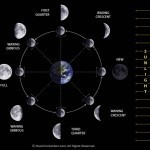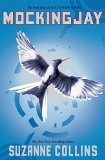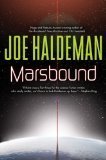Dan Thompson's Blog, page 13
January 16, 2013
Names
A common question for new writers is where do you get your character names? You wouldn’t think that was much of a problem, but a lot of stories are populated by the all-too-common John’s and Mary’s. Jumping to the other extreme, we run into some tales filled with Xg’hanpl and Krnozj and other disemvoweled words. Where do you find that balance of uncommon but pronounceable?
For human names, I’ve got a few easy sources that should be in every writer’s toolkit. The first is a baby name book, segmented by ethnicity. That lets me choose a Polynesian name for the traveler from afar while sticking with German names for the locals.
 The second reference is the phone book. This is mostly useful for last names, as I’d just to avoid Mr. Smith as well as Mrs. Gnorpthrk. However, it’s sometimes tricky to pick out an ethnically appropriate last name from the phone book, but some googling for “Polynesian surnames” or the likes will get you a lot.
The second reference is the phone book. This is mostly useful for last names, as I’d just to avoid Mr. Smith as well as Mrs. Gnorpthrk. However, it’s sometimes tricky to pick out an ethnically appropriate last name from the phone book, but some googling for “Polynesian surnames” or the likes will get you a lot.
A third resource I have used on occasion is the name of a journalist or famous celebrity that I happen to find in a newspaper or online article. No, I haven’t had a Walter Cronkite or a Brad Pitt in any of my stories, but I could easily use a Walter Pitt or a Brad Cronkite.
For alien or fantasy names, it’s a bit trickier, even though it need not be. There are certain names that are common across cultures here on earth simply because they are straightforward combinations of common phonemes. John is a common name for a reason. It’s easy to say. However, we usually see John dressed up differently in each culture. For some, it’s Jonathan. For others, it’s Ionakana or Joanico.
If you want to go more alien, just play around with slight variations like Johen or Jorn. Then you can completely divorce yourself from even the J-O-N form of John and start dropping in other sounds, like Sohn, Boen, Johl, or even Kaem. You can do the same to longer names too. Karen becomes Bashel. Walter becomes Salken. Even Catherine becomes Toshiline. They all look unusual, but they’re still phonetically plain enough to be easy to pronounce.
 And why should it matter that they’re pronounceable? After all, aren’t some alien mouths capable of making sounds we can’t even strangle out? Well yes, they can, but that’s not the point. The point is the readers have to care about these characters, and it makes it that much easier if their names can ring in the readers’ ears. Otherwise, the tragic love story of Xgrthum and Nzkla becomes that sappy tale about that X-dude and the N-chick on the distant world of I-don’t-give-a-crap.
And why should it matter that they’re pronounceable? After all, aren’t some alien mouths capable of making sounds we can’t even strangle out? Well yes, they can, but that’s not the point. The point is the readers have to care about these characters, and it makes it that much easier if their names can ring in the readers’ ears. Otherwise, the tragic love story of Xgrthum and Nzkla becomes that sappy tale about that X-dude and the N-chick on the distant world of I-don’t-give-a-crap.
How about the rest of you? What alien name has really stuck with you?
January 14, 2013
Alien Timekeeping
 I ran into this question in an SF/F group: How do you create an alternate timekeeping and calendar system? I found it interesting because it’s not so much about comparing some local calendar to the one we use here on Earth, but about creating one from scratch. How do we do that?
I ran into this question in an SF/F group: How do you create an alternate timekeeping and calendar system? I found it interesting because it’s not so much about comparing some local calendar to the one we use here on Earth, but about creating one from scratch. How do we do that?
I figure it goes back to the most basic observable phenomena. The sun rises and sets. Seasons come and go. The moon waxes and wanes. Everything else is just invented units for bookkeeping. So how do we invent that bookkeeping?
Let’s look at the two most important units to primitive time keepers: days and years. These are almost certain to exist in any timekeeping or calendar system. If the people are in anyway diurnal (or their prey or predators are), then they’re going to keep track of days at least to the extent of yesterday, today, and tomorrow. If there is any travel, you are almost certain to make plans to pack provisions for five days rather than merely two days.
Likewise, the coming and going of seasons will affect the migration of game, the availability of certain plants, and the need to hunker down and stay warm vs. escaping the heat of summer, so years will also be tracked in some form, at least to the point of talking about a previous year’s seasons or next year’s season. You might not talk about years specifically, though, since times could be discussed as “three summers ago” or “I have lived through nineteen winters.”
 But what about dividing up the day? The easiest division is day vs. night, but dividing that up into smaller units is somewhat arbitrary. We got out 24-hour clock by an early sundial method of dividing up the day into ten hours of sunlight, plus an hour of twilight at each end. This was mirrored over to night through the tracking of certain stars.
But what about dividing up the day? The easiest division is day vs. night, but dividing that up into smaller units is somewhat arbitrary. We got out 24-hour clock by an early sundial method of dividing up the day into ten hours of sunlight, plus an hour of twilight at each end. This was mirrored over to night through the tracking of certain stars.
Alas, depending on the time of year, these daylight hours varied in length, with long hours in the summer and short ones in the winter. This variation is fine in more primitive cultures, but once you start developing physics, you need a constant time measurement for talking about things like velocity and acceleration. So, sooner or later, that evolving society is going to have to nail down those hours into something rigid.
But ultimately the number of hours per day or the number of minutes/seconds/etc. is completely arbitrary. A metric division of time would be swell, but I’d have to question whether your timekeepers were that logical early enough to make it stick, rather than having sixteen hours a day because the gods willed it. The actual divisions could come from mythology to something as simple as counting the appendages on your alien or fantastical species.
As for the year, it is already naturally divided into days, but we seem to be primed to group them up into intermediate divisions like weeks and months. Certainly some of this is astronomical, and some of it is mythological, but a larger issue is that we have a hard time grasping bigger numbers at an emotional level. At some point, the distinction between 153 vs. 212 is lost on us while we can feel the difference between May and July in our guts. It’s hard to say for sure what an alien or truly fantastical brain is going to handle, but if their sense of time evolved along with spears and rocks, then it’s not going to have a lot of abstract math. And so we probably need at least some divisions.
 The origin of our month comes from the more primitive cultures that tracked the passage time by the phases of the moon. This is believed to go back to stone age, but depending on how you want to observe it, there are several different ways to measure the moon’s orbit. Do you go by the phases, or do you see when it returns to the constellation of the squid? And what if you have two moons? Does one take precedence over the other? Or do you derive some time unit based on when the closer one eclipses the outer one? If there are three or more, do you look for some kind of regular alignment in their orbital rhythms? If there is no moon, there will probably be at least some demarcations of the seasons via the solstices and equinoxes.
The origin of our month comes from the more primitive cultures that tracked the passage time by the phases of the moon. This is believed to go back to stone age, but depending on how you want to observe it, there are several different ways to measure the moon’s orbit. Do you go by the phases, or do you see when it returns to the constellation of the squid? And what if you have two moons? Does one take precedence over the other? Or do you derive some time unit based on when the closer one eclipses the outer one? If there are three or more, do you look for some kind of regular alignment in their orbital rhythms? If there is no moon, there will probably be at least some demarcations of the seasons via the solstices and equinoxes.
Our seven day week is somewhat arbitrary and has as diverse origins as the Jewish creation story in Genesis and the astronomical observation of seven bodies that move through the sky (the sun, the moon, and five visible planets: Mercury, Venus, Mars, Jupiter, and Saturn). Various cultures have run on weeks ranging from three to ten days, and it’s probably as much the luck of history as it could be some seven-favoring internal wiring that caused us to end up with a seven day week.
But if you really want to go wild, consider some much stranger settings. Think about a species that lives entirely underground in caverns. There is no sky, so there is no day and night, no lunar months, not even solstices to mark the passing of the seasons and years. What do you have then? Is there an underground river that floods based on the seasons above? Is there a consistent geyser like Yellowstone’s “Old Faithful”.
Or think about a small ringworld, but instead of spanning an entire orbit like Niven’s Ringworld, make it only several thousand kilometers across and spinning around for gravity as it makes its ways around the local star. If its plane of rotation is tilted out of its orbital plane, it will still have seasons, but instead of the seasonal cycle taking the entire orbit as it does for Earth, they’ll have two sets of seasons per orbit. Consider a calendar with a first and second summers.
But, and this is a big one, I don’t like it when writers mess around with the calendar in a lame attempt to remind that we’re not in Kansas anymore. Certainly, I don’t require every epic fantasy to use the Gregorian calendar, but I remember the disaster of the original Battlestar Galactica’s use of “yarons” and “centons” for time keeping. It was overdone yet added nothing to the story. So if you’re going to mess around with the calendar, please have a good reason for it, please keep it in the background as much as possible.
January 11, 2013
Review: Mockingjay, by Suzanne Collins


This is the third and final book in the Hunger Games trilogy. I enjoyed it, but not nearly as much as the first two.
This one picks up shortly after the end of the second book, Catching Fire, which ended on quite a cliff-hanger. Everything has broken loose and been turned upside down. It’s no longer a matter of surviving the Capitol’s Hunger Games. It’s a matter of surviving open warfare, and now everyone is at risk, not just the tributes in the arena.
Yet with so much at stake, our hero Katniss mostly just fumbles around. Yes, she’s been a pawn before, and I suppose she knows she is still just a pawn, but she only breaks out from that on the rare occasion. You’d think that by now she would be coming into her own. So, for much of the book, I was kind of annoyed with her. Towards the end, she does finally break out on her own – or at least, of her own volition – but ultimately she falls short of her goals, with others stepping in to do the heavy lifting.
I was kind of disappointed by the ending. It’s not so much what happened as how it was revealed to us. Again, Katniss has been sidelined as a pawn, and so much of what has happened is simply told to us as a fact. There’s very little dialog, and very little narrative of discovering what has happened and seeing Katniss’ reaction. Instead, we get a “this is where I am now” info-dump that is lacking in passion. She does finally make some good, independent choices, but it wasn’t enough to save the ending for me.
The love triangle was resolved more or less the way I thought it would end, and that was at least satisfying. So, it was a pretty good book, but I think it was a weak ending to the trilogy.
January 9, 2013
Indie vs. Traditional Publishing
One of the nicest things to see on the internet is watching a pointless argument actually cool off instead of pouring on even more heat. It’s rare, but it does happen, just like it did for the ongoing argument between established authors who published through the traditional houses and the upstarts like me who went the indie or self-publishing route.
 At the start of 2012, about the time I made my own decision to go Indie, the two camps were digging trenches and sharpening spears. Those in the traditional camp stood high upon the walls of their New York castles, confident in their righteous gatekeepers, and looked out upon the raging barbarians and called them deluded fools. Meanwhile, the indie camp moved openly through the fields with confidence and shook their heads at the poor word-slaves held prisoner within those very same New York castles. Between them raged a war of words so vast and vehement that I can only imagine how many novels slipped off to next year because of the wasted effort.
At the start of 2012, about the time I made my own decision to go Indie, the two camps were digging trenches and sharpening spears. Those in the traditional camp stood high upon the walls of their New York castles, confident in their righteous gatekeepers, and looked out upon the raging barbarians and called them deluded fools. Meanwhile, the indie camp moved openly through the fields with confidence and shook their heads at the poor word-slaves held prisoner within those very same New York castles. Between them raged a war of words so vast and vehement that I can only imagine how many novels slipped off to next year because of the wasted effort.
But now things have cooled down. The two camps are hardly seeing eye to eye, but I’m seeing some grudging acceptance in both camps.
What happened to change their minds? Well, I’m sure that some of it was merely them running out of steam. Even the most strident partisans eventually wear themselves out. They might say there is no point in trying to educate their idiotic opposition or that they are merely taking a brief respite from the fight, but when you add it up across the ranks, the volume has been turned down from its once-epic volume.
 But there were also some reality checks on both sides. Thousands of indie authors tossed out their one and only book, pounded out the marketing, and inexplicably did NOT become millionaires. For that matter, most did not even make $1000. It became clear that we would not all be breakout successes like Joe Konrath, Amanda Hocking, and E. L. James. Just like in traditional publishing, those were going to be the rare exception. Many realized that one book will not give them a living wage and that they did not have the patience and stamina to keep at it for ten or fifteen books before seeing much success.
But there were also some reality checks on both sides. Thousands of indie authors tossed out their one and only book, pounded out the marketing, and inexplicably did NOT become millionaires. For that matter, most did not even make $1000. It became clear that we would not all be breakout successes like Joe Konrath, Amanda Hocking, and E. L. James. Just like in traditional publishing, those were going to be the rare exception. Many realized that one book will not give them a living wage and that they did not have the patience and stamina to keep at it for ten or fifteen books before seeing much success.
Meanwhile, cracks spread through the New York castle walls. One of the best-selling SF books in 2012 was Wool, self-published by its author Hugh Howey. Another best-seller was the Fifty Shades of Grey trilogy, another self-publishing breakout. Also, major authors started pulling their electronic rights back from the traditional publishers. Specifically, J. K. Rowling decided to publish the e-book versions of the Harry Potter series herself, and I have personally heard a number of older authors talk about putting up some of the backlist for sale themselves and “making more on it now than I ever did before.” Throw in a price-fixing lawsuit by the U.S. Department of Justice, a merger or two, and those castle walls are starting to look a lot less stable.
We’re also seeing some crossover with indie authors grabbing traditional contracts and traditionally published authors walking away to go indie. Some of those moving into the New York castles talk about finally seeing their books on a bookstore shelf, while those moving out into the open fields talk about having the kind of control they always wanted but never had. And after years of everyone saying the only path to publishing was to get an agent, we’re seeing several examples of New York publishers looking at successful indie books as their new slush pile.
While both sides are starting to question the certainty of their righteous cause, it’s important to note what is really coming out of all this. It’s not that one side is right and the other side wrong. It’s that traditional publishing is right for some people and some situations while indie publishing is right for other people and other situations.
The bottom line is that we should all be trying to make the decision that is right for ourselves. These will vary according to our goals, our personalities, and where we are on this particular journey. Am I making the right decision for myself? I honestly don’t know, but I do know that I’m in a better position to know than anyone else, whether it’s some illiterate slob or the CEO of Random House.
January 4, 2013
Review: Blackbirds, by Chuck Wendig

 I’ve been reading Chuck’s blog for a year or two over at TerribleMinds.com, so I thought I would give his fiction a shot. I’m not sure how to characterize Blackbird’s genre, but at the intersection of paranormal, crime, and thriller, it’s definitely on the outskirts of my usual reading.
I’ve been reading Chuck’s blog for a year or two over at TerribleMinds.com, so I thought I would give his fiction a shot. I’m not sure how to characterize Blackbird’s genre, but at the intersection of paranormal, crime, and thriller, it’s definitely on the outskirts of my usual reading.
The premise is that Miriam, a young drifter, can see the time and circumstances of anyone’s death as soon as she touches them – everyone, that is, except herself. It’s not exactly a Disney princess life for her, seeing often-gruesome death with every handshake. More than once she’s tried to stop them from dying, but in a cruel twist she just ends up being the cause of their demise.
So when she brushes up against a truck driver and sees his murder and hears him calling out to her as he dies, she’s in a pickle. Is she helping the murderer, or is she the next victim? She does what she can to avoid it all, but fate seems as inevitable as ever, with each random turn taking her closer to the grisly murder. Is there some way out? Maybe, but she’s going to have to fight fate for it.
Overall, I liked it, but he didn’t knock it out of the park. I liked most of his gritty, profanity-infused writing style, but the point-of-view kind of threw me. The story tracks with Miriam most of the way through, very rarely showing a scene where she is not present. The narrative distance from her is almost non-existent, i.e. we’re totally in her head, in her thoughts. Yet, the tale is told almost entirely from third person, and given how deep we were inside Miriam, I kept expecting it to be in first person.
The only time we got first person was in individual chunks when other characters took a chapter to tell us their back-story, and strangely, those sections did not have nearly the narrative closeness that the rest of the story did. Then toss in a series out outside-the-plot interludes where Miriam is giving her own back-story in an interview reminiscent of the film Memento, and the result was a narrative style that felt like it was all over the map. However, I’ll admit that these are largely structural issues that might only stand out to another writer, and in that sense, it could simply be that I don’t like it because I don’t write that way. Still, I was the reader, and I didn’t like it.
So, I’ll give it five stars for originality and then rip off a few of the stars’ points for the structure of the narrative.
January 2, 2013
2013: Looking Forward
I tend to do goals rather than resolutions, because goals usually last beyond February. So, here are my goals for 2013
In short, it’s about the same as last year: publish two novels, write two new novels, and keep up the blog. I also have some stretch goals that I’ll discuss further down.
Publishing: Just like last year, I hope to self-publish two books. They will be Ships of My Fathers, and Hell Bent. Both of these are in the edit queue, and I already have beta reader feedback on Ships of My Fathers. As a stretch goal, I’d also like to publish a third novel, probably Debts of My Fathers.
Writing: Again like last year, I hope to draft two new novels. They will likely be the next two books in the two different series, and those are tentatively titled Oaths of My Fathers and Stone Killer. As a stretch goal, I’d like to draft a third novel, either another one in those series or possibly a mystery. I’ve also been playing around with a non-fiction book I’m writing with a partner.
Blogging: I’m pretty much keeping the same format and schedule, but as I’ve said before, I’d like to add some short fiction.
In addition to those main goals, here are a few more things I’m thinking about this year.
Better multitasking: No, I’m not talking about writing while checking email or blogging while watching television. For creative work, I really do need to focus on one task at a time. So, what I really mean by multitasking is to switch from one project to another when one gets blocked.
Last year I worked on publishing through early May, then edited one book in May, then wrote a new book from June through November, and December kind of disintegrated into illness and holiday distractions. Through the year, there were several weeks, even months, when I was either blocked or waiting for someone else, but I was focusing on one project at a time. This year, I want to move away from that and just keep things moving. I have enough irons in the fire that I’ll never be short of tasks.
More marketing/promotion: And by more, I mean to say that there might actually be some this year. Last year I made an intentional choice not to do much of any promotion. Sure there are some links to Beneath the Sky on my blog page, but after its launch, I’ve never done more than occasionally mention it in passing. I haven’t done any blog tours. I haven’t gone out and blasted on Twitter or Facebook. I don’t even have business cards with my writing info printed on them.
I avoided all of that because I felt my efforts would be better spent in getting more books into print, and I still believe that. I figure that any marketing efforts will yield a better ROI when I have more than one thing to sell them. But if this year goes according to plan, I’ll have three or more books for sale, so it’s time for me to at least think about the marketing side.
No, I’m not about to start spamming social media or running all over the blogosphere whoring my stuff out. Not even close. But I will, for example, get some business cards printed up, and I might sound the trumpets a little louder when I do my next novel release. Who knows, I might even look into a blog tour or posting more original content on some of the new Google+ communities.
Friendship: This one is pretty foggy, but I wish I had a few friends who were writers. Certainly, I know several writers, but that’s more of a fan-to-writer relationship. I also know a couple of writers well enough to call them at least acquaintances, but they’re sufficiently further along that we’re not really contemporaries. They’re more likely to tell me I’m doing it wrong simply because I’m doing it differently than they did fifteen years ago.
I suppose I’m looking to befriend other writers who are in my cohort, i.e. those who are about as far along in their writing careers as I am. Maybe they’ve already got a few books out, or maybe they are only now about to publish. I’m not looking for a formal writers group. I’m just looking for someone to commiserate with about that problem in chapter 12.
Health: My health this past year has been crap. Some of this is kid-inflicted while the most of it is simply not taking good enough care of my body. This might sound more like a resolution, but I am tracking it elsewhere in a proper goal-like fashion.
So that’s about it for 2013. Do you have any special goals?
December 31, 2012
2012 in Review
 Yep, it’s that calendar-driven excuse to look back and take stock of what we’re doing. Lots of stuff happened in the world, but I’m not here to talk about that. It’s my blog, after all, so I’m going to focus on me!
Yep, it’s that calendar-driven excuse to look back and take stock of what we’re doing. Lots of stuff happened in the world, but I’m not here to talk about that. It’s my blog, after all, so I’m going to focus on me!
I started the year with three goals:
Self-publish two novels
Write two new novels
Blog consistently
How did I do? Eh… decently. I didn’t get everything done, but I got further than I’ve ever gotten before.

 On the publishing side, I put out my first book, Beneath the Sky. I had originally given myself three months to do it. Alas, it took four, but at least one month of that was me thrashing about trying to figure out the process. I never did get the second one out. Originally, that second one was going to be my first fantasy novel, Hell Bent, but I think I’ve decided to launch my Father Chessman series first (Ships of my Fathers, etc). While I did get that one out to beta readers this year, it hasn’t progressed beyond that.
On the publishing side, I put out my first book, Beneath the Sky. I had originally given myself three months to do it. Alas, it took four, but at least one month of that was me thrashing about trying to figure out the process. I never did get the second one out. Originally, that second one was going to be my first fantasy novel, Hell Bent, but I think I’ve decided to launch my Father Chessman series first (Ships of my Fathers, etc). While I did get that one out to beta readers this year, it hasn’t progressed beyond that.
On the writing side, I wrote another draft, but only one draft. My original goal had been to crank it out in June and July, but it ran into troubles, and I didn’t finish it off until mid-November. That’s one of the reasons I didn’t get that next novel published, and it’s also why the second one didn’t get written. Still, this was the fifth novel-length work I’ve done, so I’m no longer intimidated by the sheer scale of writing a book.
As for the blog, I haven’t been perfectly consistent, but I did pretty well. My original schedule was for three posts a week, which would come to 156 entries in total. I did around 135, so that’s about 85%. Probably the thing that hurt me the most was not getting them written in advance. When that happened, there usually wasn’t a posting that day. Still, I’ve gotten pretty good at getting them done in advance and scheduled to drop in the morning automatically. What, you didn’t really think I was up blogging at six or seven in the morning, did you?
There were two other interesting milestones that I passed this year. The first one is about my sheer word count. I’ve heard an old adage that every writer has a certain number of words of crap that they have to write before they get to the good stuff, usually something on the order of 500,000 to a million words. It’s really just another way of saying that writing fiction well requires a lot of practice, so we have to be patient and do the work, but putting a number on it at least makes us feel like there’s a finish line.
Well, this year I crossed the 500,000 words milestone. I had to count all my short fiction from way back as well as the 70,000 words from that novel I abandoned years ago. (Note: this only counts words of fiction, not emails, letters, or blog entries.) My total is now around 560,000.
Maybe that means I’m finally writing the good stuff now – which, ahem, does little to recommend my already published novel Beneath the Sky – or maybe it means I’m still only halfway there. With the ease of word processors, perhaps that number does need to be pushed all the way to a million. But wherever that mythical finish line is, 560,000 words of fiction is a lot. That’s like 1800 pages in book form.
 The second milestone was an odd one, and it came with little warning. After years of writing, MS Word rose to the top of my start menu, finally displacing World of Warcraft as my most frequently launched program. We always talk about making time for writing by cutting back on other things like TV, games, and various social commitments, but it’s rare that we get an external validation that we’ve succeeded at that effort.
The second milestone was an odd one, and it came with little warning. After years of writing, MS Word rose to the top of my start menu, finally displacing World of Warcraft as my most frequently launched program. We always talk about making time for writing by cutting back on other things like TV, games, and various social commitments, but it’s rare that we get an external validation that we’ve succeeded at that effort.
So strangely, that has meant more to me than publishing that first book, and it has stuck with me. Every time I go to that start menu, I see a reminder that now I am a writer.
How about the rest of you? Did 2012 bring anything special to your lives?
December 28, 2012
Review: Marsbound, by Joe Haldeman

 I picked this one at random from a pile of samples and was totally sucked in. It’s a first person narrative of an eighteen year old girl who emigrates to Mars with her family in one of the first waves of colonists/explorers and then actually finds martians… sort of.
I picked this one at random from a pile of samples and was totally sucked in. It’s a first person narrative of an eighteen year old girl who emigrates to Mars with her family in one of the first waves of colonists/explorers and then actually finds martians… sort of.
The science is pretty good, even for the martians (hence the “sort of”), and it was a lot of that minutiae that drew me in. No, it’s not page after page of technical exposition. Rather, it shows a lot of the “boring” day to day business of riding a space elevator up to an interplanetary ship, making the trip across the void, landing, and living in the harsh conditions of another planet. I suppose I liked it for many of the same reasons I enjoyed the daily details of Nathan Lowell’s Solar Clipper series, i.e. it made the fantastic life of space travel feel real without making it mundane. By the time we got to the “martians”, I was completely drawn into her personal world.
This book also comes close to one of my favorite kinds of conflict, where the bad guy isn’t really a bad guy, just that he is making decisions from his own values, and those decisions and actions end up conflicting with our hero’s goals. There are two bad guys in this. The first is a local administrator who is doing her best to protect the Mars outpost and humanity at large and who makes some bad calls in the process. The second is a distant group that is acting to protect itself at any cost with no apologies to those who get in the way.
In the end, heroes are heroic, bad guys are thwarted, and sacrifices are noble. It finishes with a semi-open happy ending, and I believe there are at least two sequels, so I may be looking at those soon.
December 26, 2012
Fill Up Your Kindle
I am generally not a self-promotion whore, but since a number of you may be loading things onto your brand new Kindle today, I thought to remind you that I have a book out there you could grab:

 Maggie is a young schoolteacher on the multi-generation colony ship, God’s Chariot, bound for their promised world, New Providence. When a faster-than-light freighter crosses their path, a forgotten history catches up with them and puts their future in doubt. Maggie and her father are drawn to the center of the conflict over what will become of their colony, their faith, and even their lives.
Maggie is a young schoolteacher on the multi-generation colony ship, God’s Chariot, bound for their promised world, New Providence. When a faster-than-light freighter crosses their path, a forgotten history catches up with them and puts their future in doubt. Maggie and her father are drawn to the center of the conflict over what will become of their colony, their faith, and even their lives.
It’s the space-opera analog of the Mayflower landing in modern Boston, filled with high technology, different customs, and 747’s cutting their travel time down to hours.
Battling conspiracy, politics, and even pirates, Maggie must rise to the challenge or face her colony’s doom.
December 21, 2012
The Apocalypse Ends Today, Almost
 Nothing is going to happen today. Except, of course, that something is going to happen today, and that is why all this Mayan calendar insanity will regrettably soldier on.
Nothing is going to happen today. Except, of course, that something is going to happen today, and that is why all this Mayan calendar insanity will regrettably soldier on.
If you’ve been blissfully unaware that the world is supposed to end today due to some old Mayan calendar having the equivalent of the Y2K event, then skip this and go on with your merrily unharried life. Even if you do know, I’m not going to try to convince you that it’s not going to happen. There are plenty of debunking sites out there that will tell you 1) how ridiculous it all is, and 2) how they actually have the date wrong anyway. On the other hand, if you actually believe this nonsense, why are you wasting your last day on Earth reading my blog?
And while part of me is looking forward to laughing at the true believers of the Mayan apocalypse, I’m also dreading what tomorrow will bring. Why? It’s not that I dread the world’s existence. It’s that I dread all the various things that will happen today being pointed to tomorrow as what the whole Mayan calendar was really predicting.
You see, not all of the true believers are predicting an end to the world. Some of them are interpreting this Mayan math as a signal to some other world-altering event. We’ll be contacted by the ancient astronauts, or perhaps we’ll all ascend to some higher plane of existence, or even more far-fetched… Paris Hilton will join Hugh Hefner in a vow of chastity. While that might be the end of the world for Hugh Hefner, these kinds of predictions leave the rest of us still standing. And since there will be hundreds of thousands of newsworthy events today, there is plenty of material to work with.
First, let’s talk about self-fulfilling prophecies. I fully expect that somewhere today, someone is going to blow something up. We might also see another mass-suicide doomsday cult. We’re also probably due for some kind of threat, perhaps some kind of attack on infrastructure or public places. Oh, and I imagine there a few thousand press releases queued up to be unleashed today. None of these have anything to do with what the Mayans were thinking about, if they were even thinking about anything other than, “We’ll all have upgraded calendars by then.” No, these events will all be about someone being stupid and/or evil and picking this date to do it, just to cash in the hype.
Closely related will be some staged events. The great prophet of New Maya will ascend today, or something like that. Far more likely is that he’s slipping away to Peru with embezzled church funds, leaving behind disappointed followers and an IRS investigation.
Random occurrences are harder to dispute. We might see a major melt event on this first day of Antarctica’s summer. There might be the start of a large forest fire somewhere. A world leader might keel over with a heart attack. A lot of random things happen every day. Today will be no different, so there will be no shortage of things for a true believer to point to and say, “That’s what it’s all about – don’t you see?” I can’t do much more than shake my head and point to the sheer randomness of it.
But the most annoying will be those small events that we cannot yet see their significance. These could be tiny things like some newsworthy birth or the discovery of yet another exoplanet. Even worse, these could be things that are so trivial as to have escaped the news altogether, with the faithful clinging to the notion that all will reveal itself in time. And to them, I say fine, believe what you want to believe. Just don’t expect me to get all excited about it.
So, stuff is going to happen today, but about the only thing I can tell you for certain is that we won’t be done with this Mayan calendar insanity in the morning.



